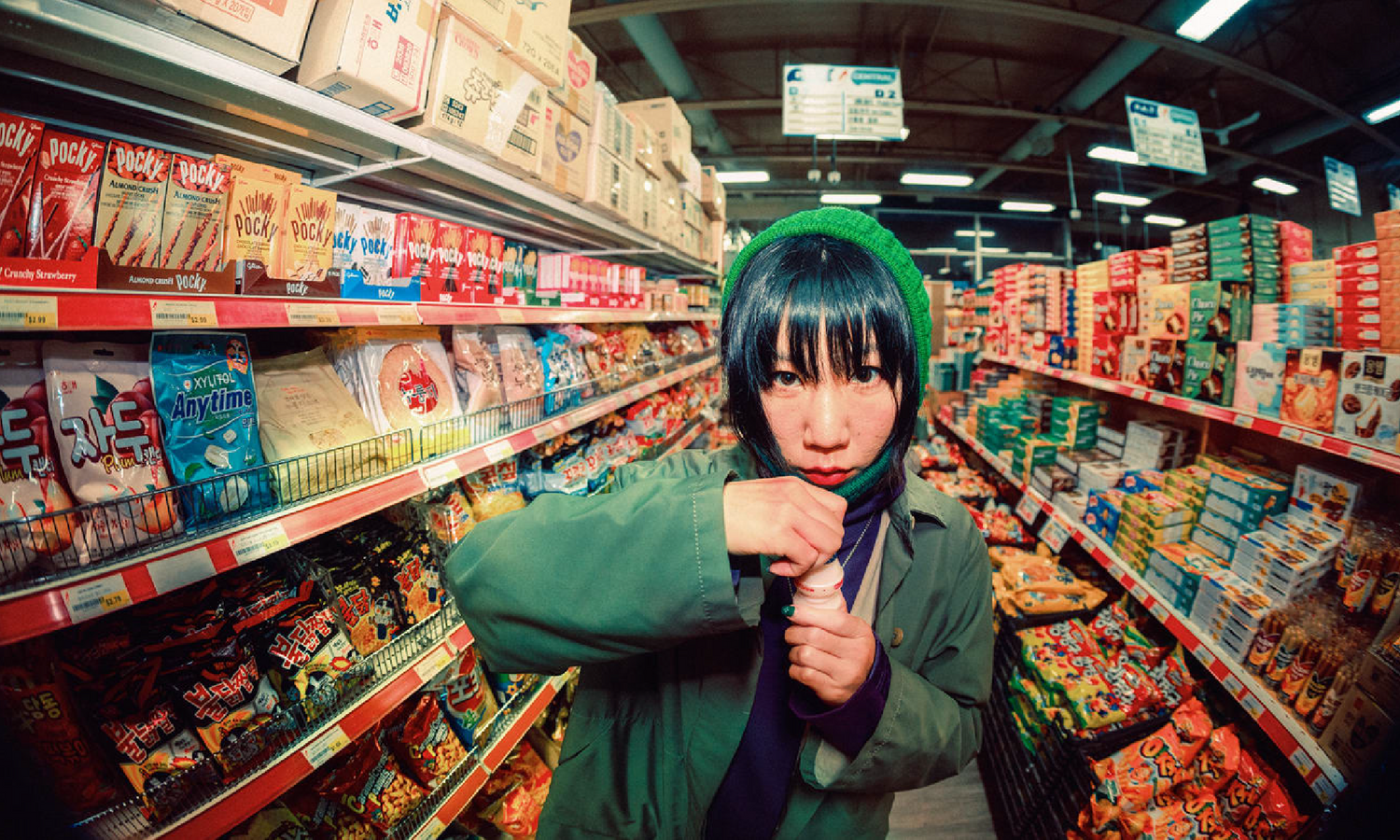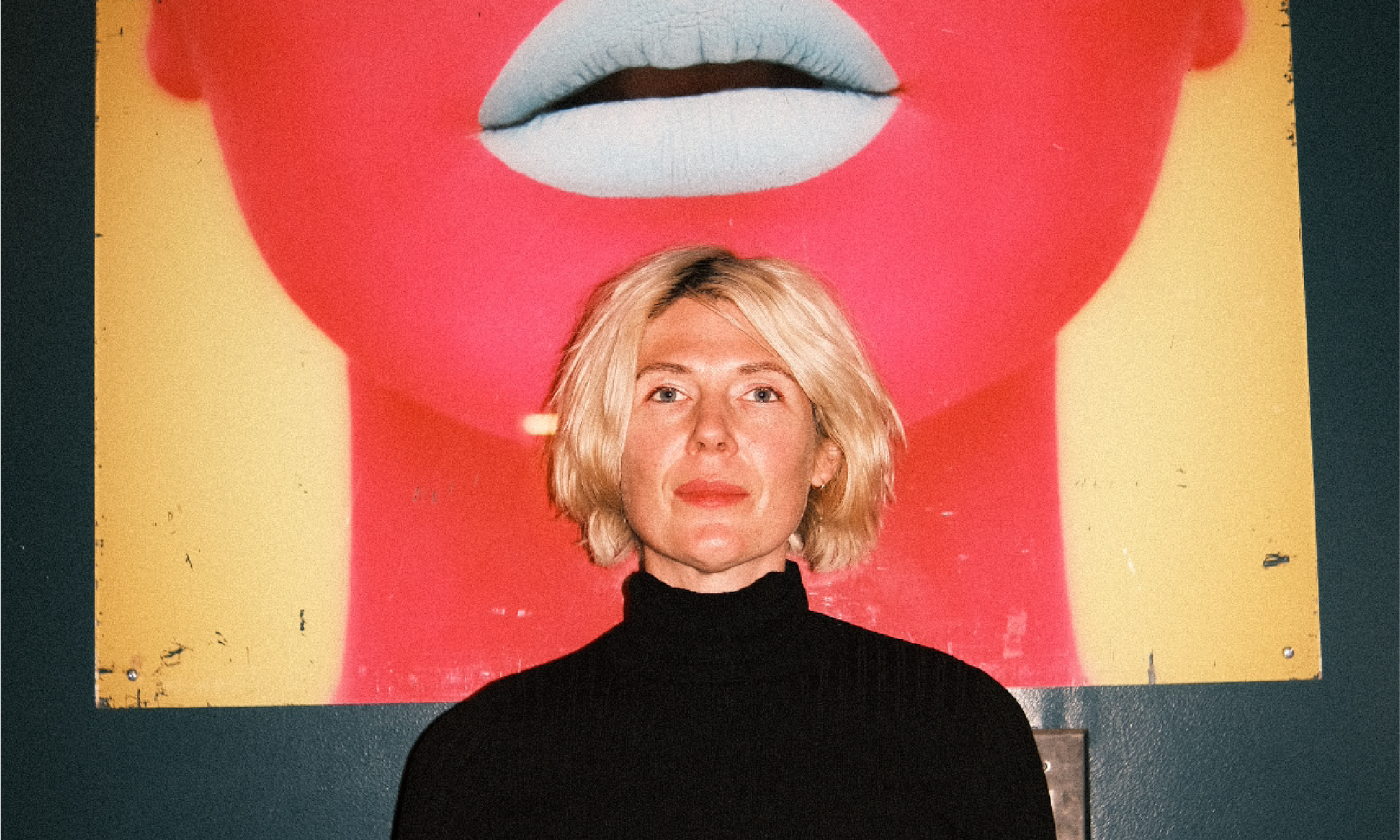
Korea Town Acid shifts her creativity on Metamorphosis
Jessica Cho used to be all about living in the moment. As Korea Town Acid, the Toronto-based DJ took an improvisational approach to creativity, feeding off of the energy of the audiences she lit up around the world including New York, Berlin, and her city of birth, Seoul.
Deprived of that audience by the pandemic, though, Cho has shifted her attention to producing her own beats. “I was focusing on my live playing in the past, but after the pandemic, it was just more important to constantly release stuff,” she tells Collective Arts Brewing by phone.

Cho's new focus has resulted in her first full-length album, Metamorphosis, out last April via Toronto label URBNET. Mixing '90s boom-bap beats, drum and bass, and the cinematic vibes of Korean mystery dramas, Metamorphosis is a trippy callback to nocturnal nights. Inspired by her preoccupations with artificial intelligence and The Matrix, danger lurks in the margins of her futuristic cityscape.
The 10 tracks on Metamorphosis emit hazy moodlighting, but they do not always feel claustrophobic. She strikes this delicate balance, for example, on the breathable “Bloom (꽃),” where Toronto singer DESIIRE adds an inviting swagger with his velvety voice.
Along with DESIIRE, Cho enlisted a talented cast of international names for Metamorphosis. “For the album that I just released, I wanted to make beats that were friendly for rappers.”
On “Korea Town Shout Out,” Imani of influential L.A. hip hop group the Pharcyde lays down rhymes over the lumbering beat of another Angeleno, Dreamdave. “He's just a really good beatmaker,” Cho says effusively. “He's one of those friends who's always making beats. He's one of those guys I always trust – he's definitely one of my mentors.”
Elsewhere on Metamorphosis, U.K.-based Korean rapper Pianwooo ignites “Bounce (흥),” the album's edgiest and most kinetic track. And Seoul's PNSB mumbles over dangling twilit piano on “Eclipse (일).” The glitchy crawl of “Dazed,” featuring New Jersey's LJ the Alien, perfectly evokes the song's bleary eyed title.
Whereas DESIIRE and Dreamdave are old friends of Cho's, the rest are largely internet friends introduced by mutuals. Regardless of how well she knows the individuals she chooses to work with, though, she explains, “When I reach out to certain artists, I already kind of have an idea of what they're going to do and how that's going to contribute to my songs.” At most, Cho provides them with a general idea of what she is looking for and will finesse the results in editing if necessary. “I already saw some type of potential in them that could work with my music, so I try not to stretch them too much or micromanage them.”
Cho's intuition for possible collaborators have proven sharp. The joint tracks fit seamlessly into one another as well as her solo compositions. Together, they form a cohesive whole. The process itself went smoothly, too. “It's important to trust the artist you decide to collaborate with and let them do their thing, but then if it's something completely out of the picture of what you imagine, you could communicate. But I didn't have too many problems with that.”
Before the pandemic, Cho was more focused on playing live. She was also mostly doing remixes and compilation albums. “But I realized after the pandemic that releasing your own album is really important because it's your own thing.” Such a project, like Metamorphosis, also allows Cho to showcase artists she admires.
At the foundation of all her work is her background as a classically trained pianist. “It's very different,” she says of her training compared to her more current approach to electronic music. “In classical music, you are just mimicking someone else's piece that has already been written, versus improvisation [which] is following the groove and your intuition. There's more creative freedom.”
But despite the intense regiment and precision that classical music demands, Cho's trained impulses do not clash with her innate sense of play as much as one might assume. To a degree, her classical foundation actually guides her improvised experimentation. It has helped ingrain her ability to imagine how different moving parts can lock together. “Having to learn very basic theories, like scales – that fundamental knowledge really does help in the long run,” she explains. “Once you know the basic scales and theories, it does help to pick up other instruments like drum machines, samplers, or synthesizers.”
Cho's musical background has also included stints playing keyboards in various bands when she was a teenager. Her affinity for analogue equipment has carried over into her work as an electronic musician. Along with the abovementioned hardware, she is also adept at DJing with vinyl and CDJs. In fact, she has taught how to DJ with both records and CDs as part of workshops hosted by Roland Canada and Intersessions.
Cho is careful not to call herself an educator, but regardless of how she feels about capacity to teach, she has quickly become a seasoned DJ with much knowledge to share. And as she builds her network of friends and collaborators and continues to learn from those around her, she will have even more to offer to up-and-coming artists.
Presently, Cho is “just wrapping another album that I want to release at the end of the year. Plus I'm trying to write another record with URBNET.” And though she just finished several remixes, she is putting most of her energy towards creating music similar in scope and ambition to Metamorphosis. “It's a lot of work because an album is not just making a remix or making one song. It's a bigger theme and it's conceptualizing.”
Whether Korea Town Acid premeditates vivid worlds or rediscovers in-the-moment inspiration, no doubt fans can look forward to more absorbing listening experiences both at home and in the club.
Photo Credit: Toru Ushiroda
Author: Leslie Ken Chu

COLLECTIVE ARTS NEWSLETTER
Keep up-to-date with new products, promos, fresh art, exciting events, and more!
Art: @teenybotanist | Canmore, AB











